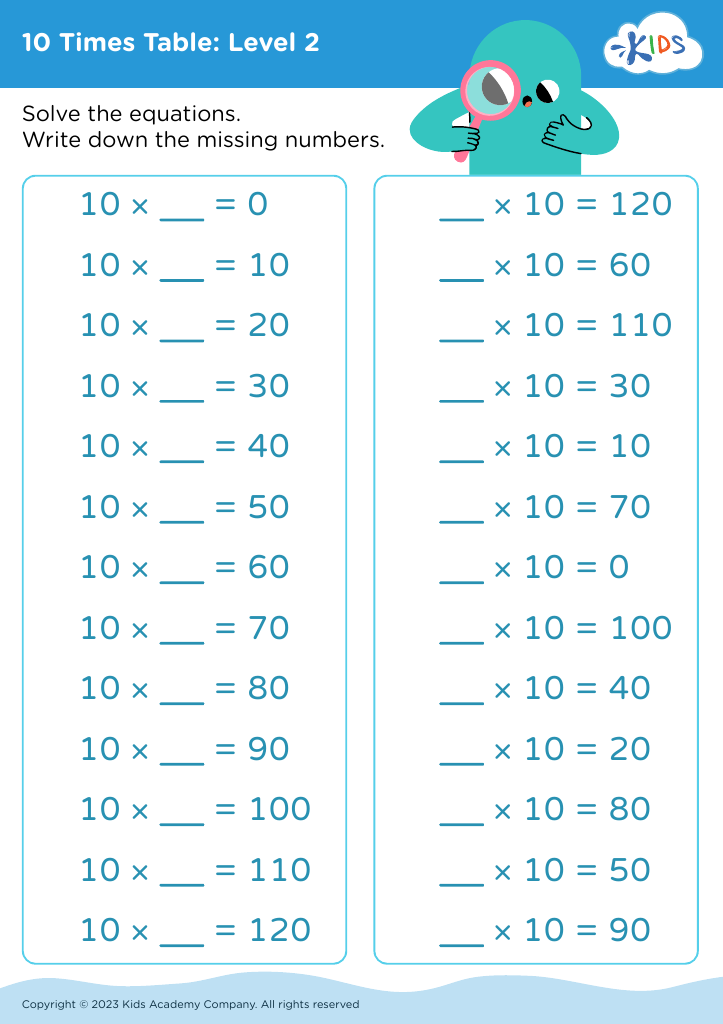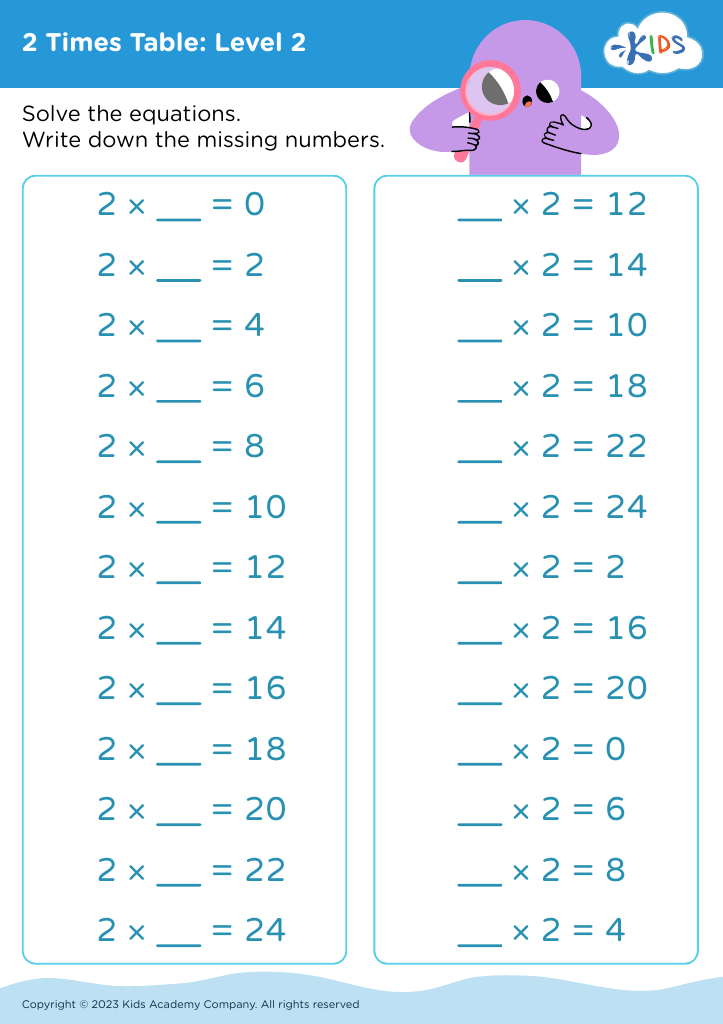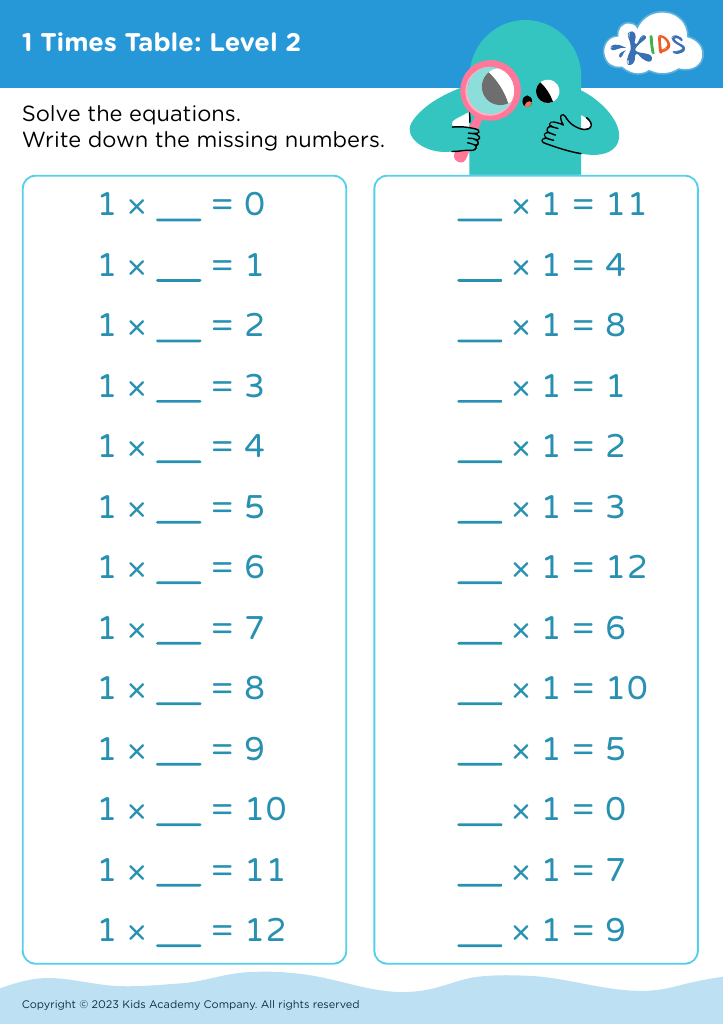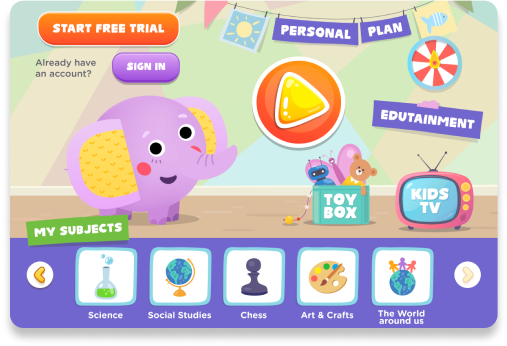Understanding times tables Normal Advanced Times Tables up to 12 Worksheets for Ages 6-9
3 filtered results
-
From - To
Unlock the world of multiplication mastery with our "Understanding Times Tables Normal Advanced Times Tables up to 12 Worksheets for Ages 6-9." Tailored for young learners, these engaging worksheets help kids grasp essential multiplication concepts, boosting both their confidence and capabilities. With a variety of exercises designed to make learning lively and effective, your child will seamlessly advance from understanding basic times tables to mastering complex ones up to 12. Perfect for kids aged 6 to 9, these worksheets foster critical thinking and instill foundational math skills crucial for academic success. Make math fun and accessible with our expertly crafted resources!
Understanding multiplication tables up to 12 for ages 6-9 is crucial for several reasons. At this stage, children are typically in grades 1-3, where they establish foundational math skills that will support more advanced concepts in later grades. Mastery of these times tables facilitates a smoother transition to complex arithmetic operations like division, fractions, and even algebra.
First, mental arithmetic benefits immensely from a solid grasp of times tables. It enhances speed and accuracy when solving various mathematical problems. For instance, quick recall of multiplication facts saves cognitive resources, allowing students to focus more on problem-solving strategies instead of basic calculations.
Second, early proficiency in multiplication builds confidence. When children are confident in their abilities, they are motivated to tackle more challenging problems and are more likely to develop a positive attitude toward math, which is crucial for long-term academic success.
Furthermore, real-world applications of multiplication tables make everyday tasks easier. Whether it’s measuring ingredients while cooking, solving word problems, or handling money, times tables knowledge equips children with practical skills.
For these reasons, parents and teachers should prioritize ensuring children understand multiplication tables up to 12. It sets the groundwork for lifelong numeracy skills, fostering both academic achievement and practical competence in everyday activities.



















